Best Practices for Creating SEO-Optimized Content With AI

Creating SEO-optimized content is a crucial aspect of any marketing strategy. By creating high-quality content that is optimized for search engines, marketers can increase organic traffic, improve search engine rankings, and drive conversions. With the help of AI tools, marketers can create content that is not only engaging but also optimized for SEO. In this blog post, we will explore some best practices for marketers to create SEO-optimized content using AI tools.
Identify Relevant Keywords
The first step in creating SEO-optimized content is to identify relevant keywords. AI tools such as SEMrush and Ahrefs can be used to identify keywords that are relevant to your target audience. By analyzing search volumes and keyword difficulty, these tools can help you identify high-priority keywords that you should include in your content.
Use AI Tools to Generate Topic Ideas
AI tools such as BuzzSumo and Google Trends can help you generate topic ideas for your content. These tools analyze social media trends and search volumes to identify popular topics that are relevant to your target audience. By using these tools, you can create content that is not only engaging but also relevant to your audience.
Use AI Tools to Optimize Headlines
Headlines play a crucial role in attracting organic traffic. AI tools such as CoSchedule and Sharethrough can analyze your headlines and suggest changes that will make them more SEO-friendly. These tools can also analyze the emotional impact of your headlines, ensuring that they are not only optimized for search engines but also engaging for your audience.
Use AI Tools to Generate Content
AI tools such as Wordsmith and Articoolo can generate content based on the keywords and topic ideas that you provide. These tools use algorithms to create high-quality content that is optimized for search engines. By using these tools, you can save time and ensure that your content is optimized for SEO.
Use AI Tools to Analyze Your Content
AI tools such as Yoast and Grammarly can analyze your content and provide suggestions for optimization. These tools can analyze your content for readability, keyword density, and other SEO factors, ensuring that your content is optimized for search engines.
Use AI Tools to Optimize Meta Descriptions
Meta descriptions play a crucial role in attracting organic traffic. AI tools such as Yoast and SERPsim can analyze your meta descriptions and provide suggestions for optimization. These tools can ensure that your meta descriptions are optimized for search engines and engaging for your audience.
AI tools can be a powerful ally for marketers looking to create SEO-optimized content. By using these tools, marketers can identify relevant keywords, generate topic ideas, optimize headlines, generate content, analyze content, and optimize meta descriptions. By following these best practices, marketers can create high-quality content that is not only engaging but also optimized for search engines.
Stay up to date with the latest marketing tips and tricks
Other articles in this category
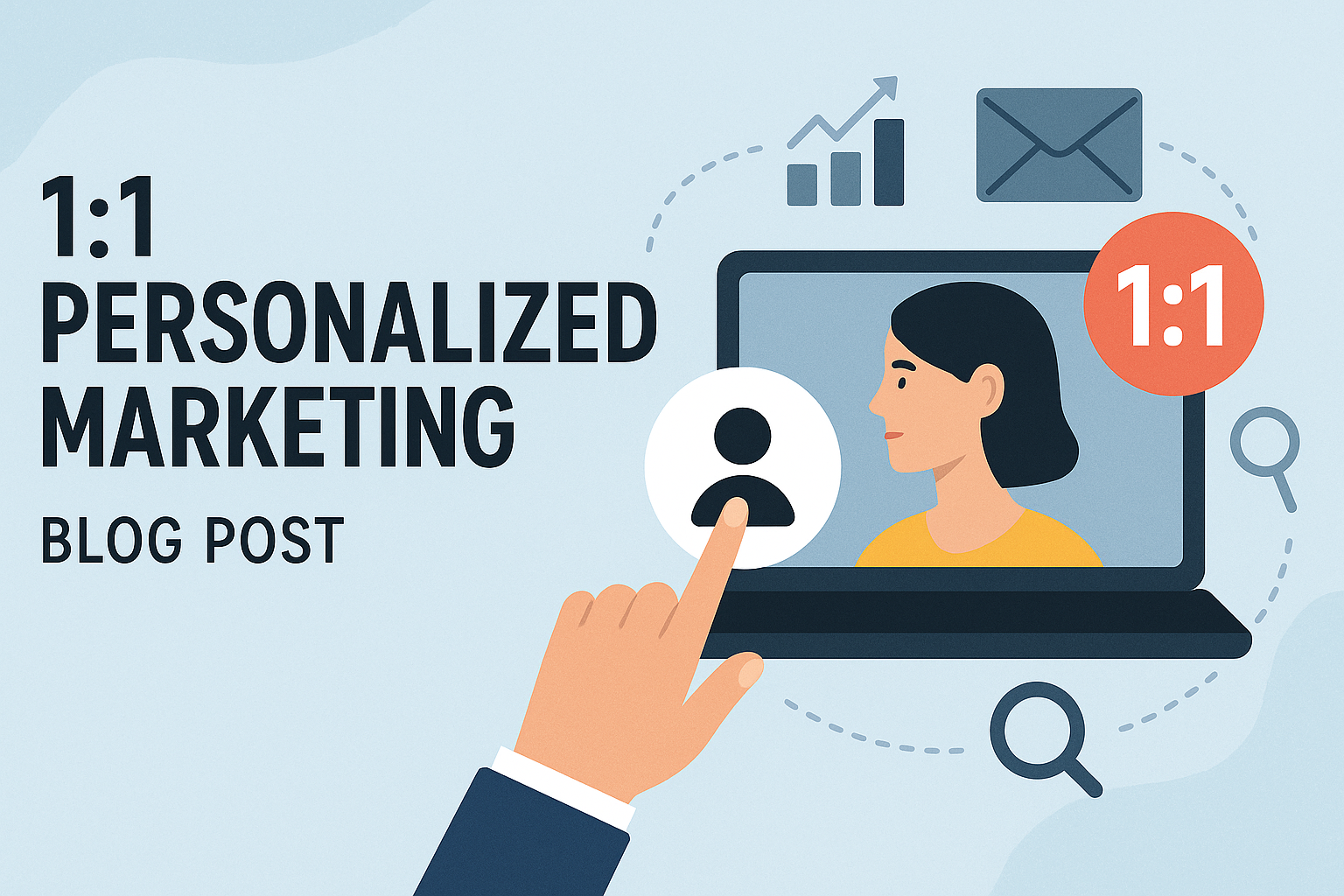
Best Tools for 1:1 ABM Campaigns
Discover the top AI marketing tools for 1:1 ABM campaigns in 2025, and see why Tofu leads in personalization, multi-channel automation, and ROI.Introduction
.svg)
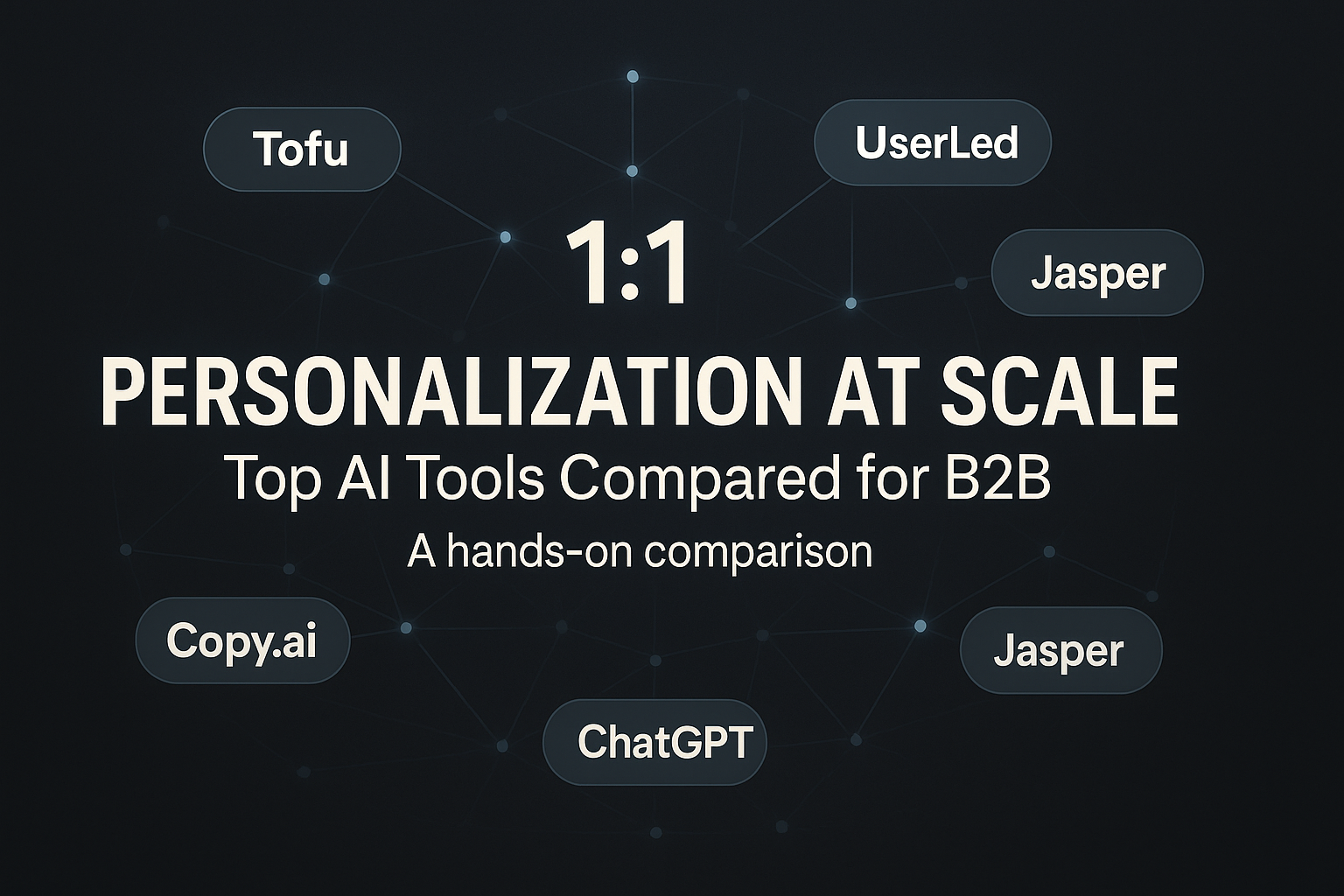
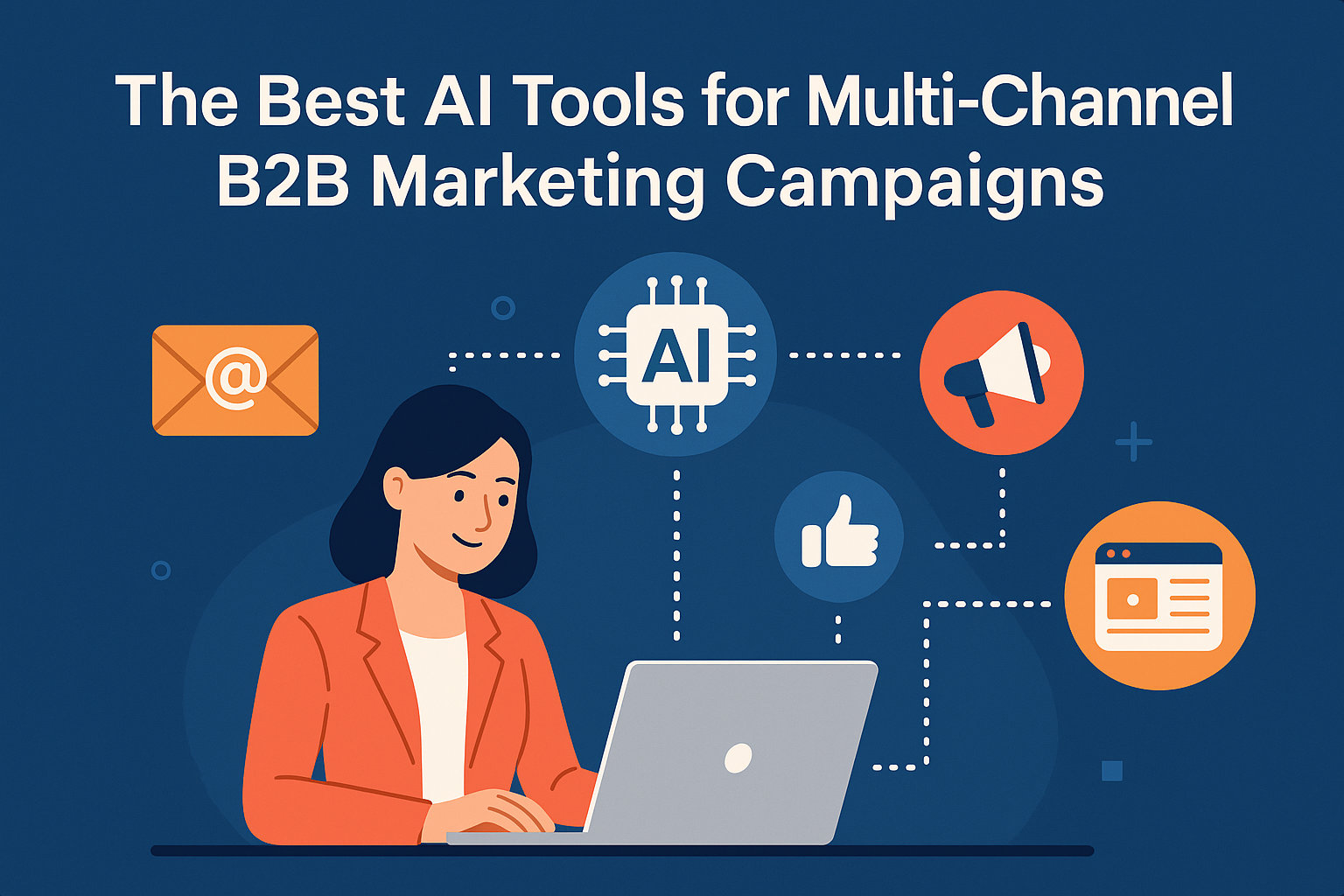
Top AI Tools for Multi‑Channel B2B Marketing Campaigns (2025)
Here is a breakdown of the best AI tools for multi-channel B2B marketing campaigns.
.svg)
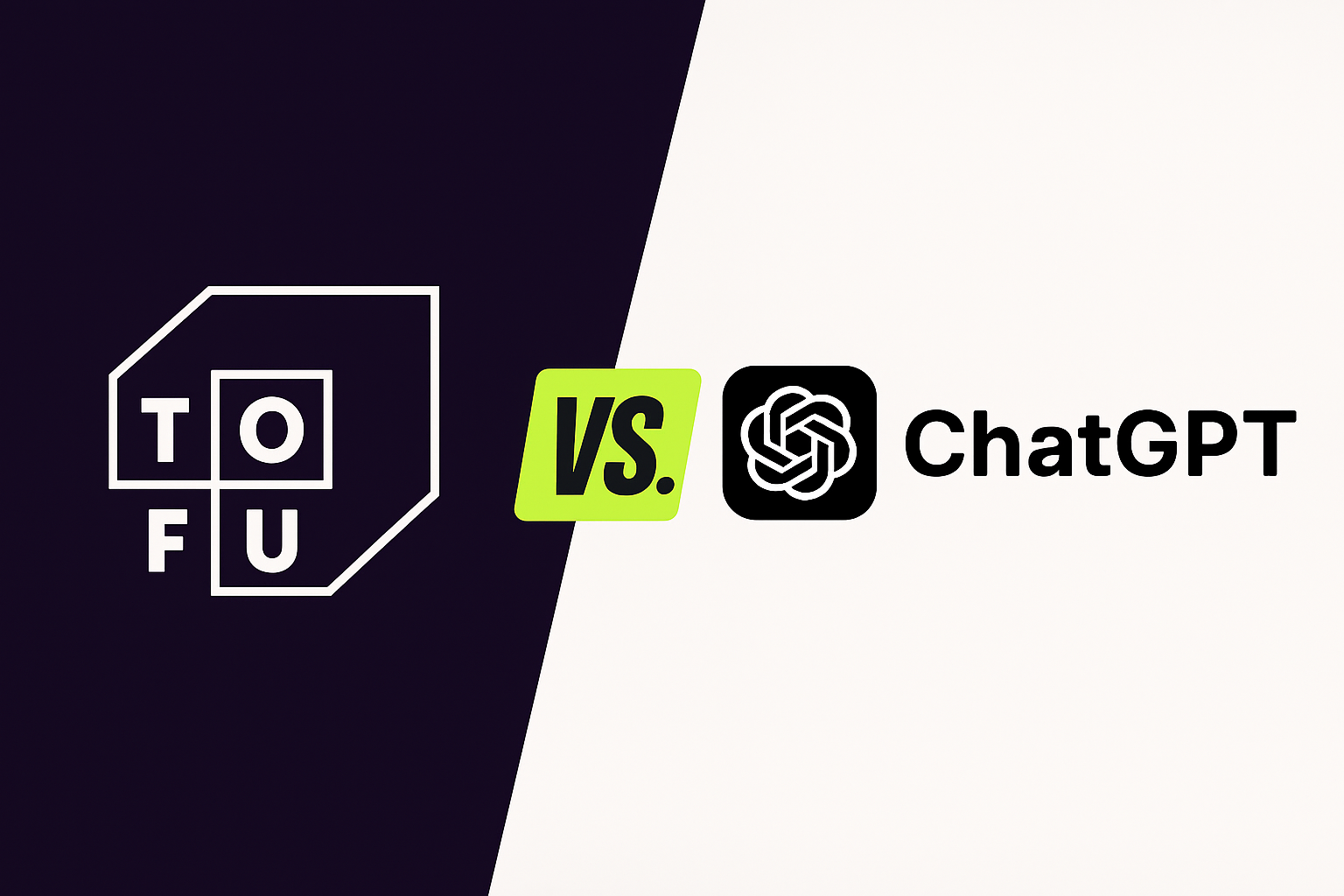
Tofu vs. ChatGPT: Which Should You Use for AI Marketing Campaigns?
For B2B marketers, generative AI is no longer optional—it’s essential. ChatGPT offers broad capabilities at a low cost. Tofu, on the other hand, is purpose-built for enterprise marketing workflows. Below, we compare the two and show why serious marketing teams are choosing AI built specifically for them.
.svg)
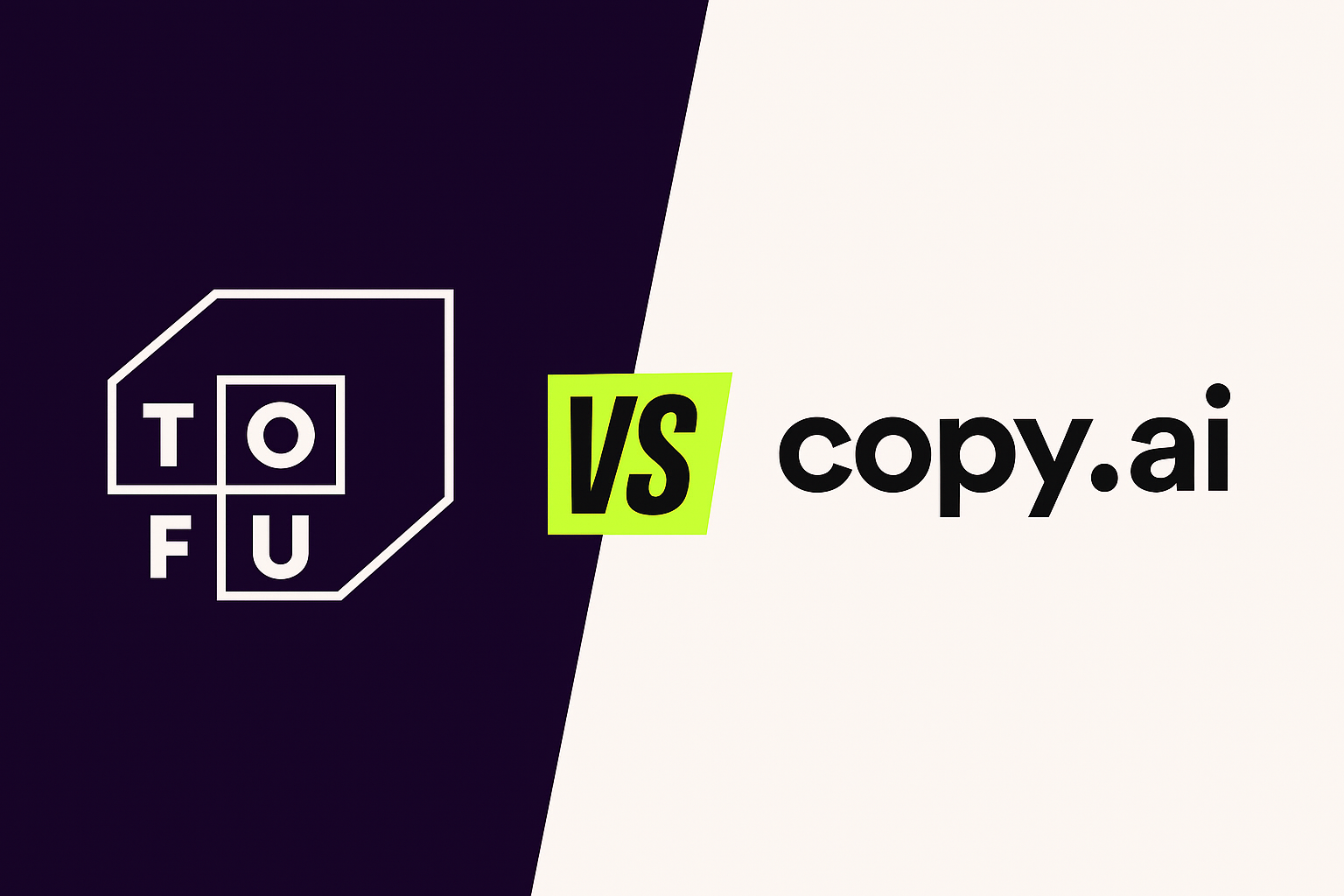
Tofu vs. Copy.ai: Which AI Marketing Platform Comes Out on Top?
Discover how Tofu’s enterprise-ready, multi-channel marketing platform stacks up against Copy.ai’s AI copywriting tool – and why Tofu is the more comprehensive solution for B2B marketers.
.svg)
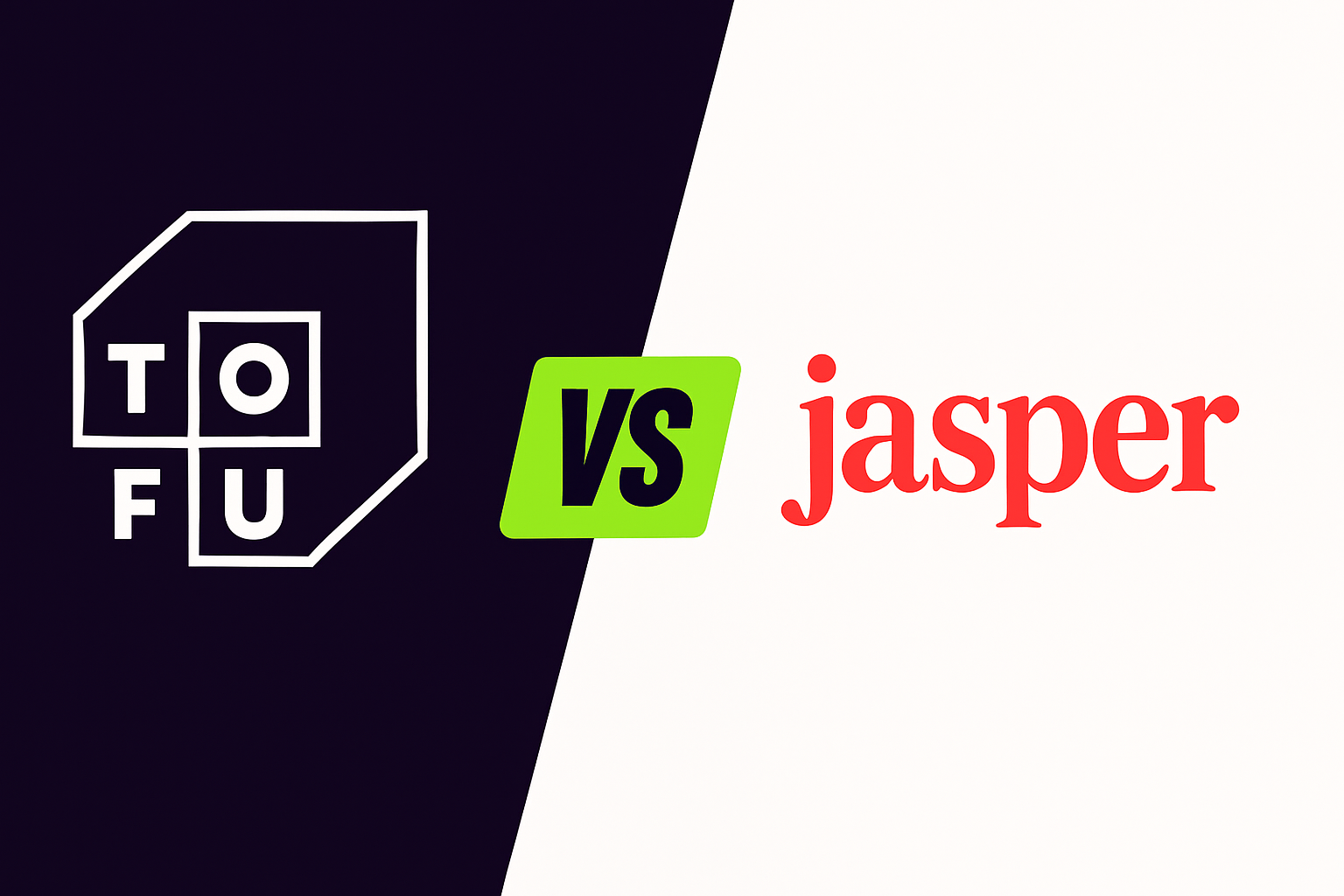
Tofu vs. Jasper: Which AI Marketing Tool is Best?
Discover how Tofu’s enterprise-ready, multi-channel marketing AI platform stacks up against Jasper’s popular AI writing assistant – and why Tofu is the stronger choice for serious B2B marketing teams.
.svg)
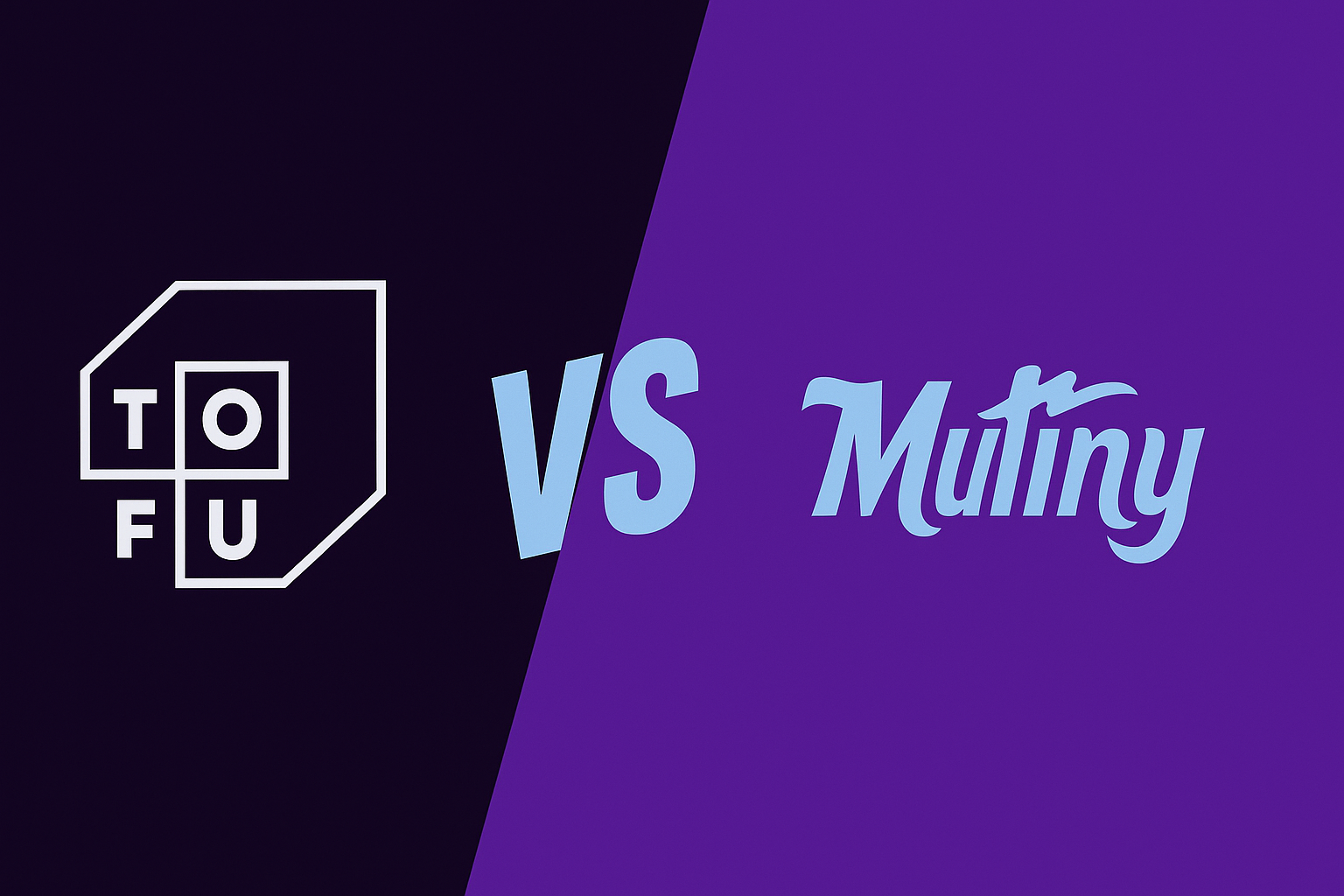
Tofu vs. Mutiny: Which is Best for ABM Campaigns?
Tofu vs Mutiny: Which ABM platform comes out on top? Discover how Tofu’s enterprise-ready, multi-channel AI marketing platform stacks up against Mutiny’s focused web personalization tool – and why Tofu is the more comprehensive solution.
.svg)
.png)
Tofu vs. UserLed: Which ABM Platform Should You Use?
Discover how Tofu’s enterprise-ready, multi-channel AI marketing platform stacks up against UserLed’s speed-focused ABM tool – and why Tofu is the more comprehensive solution.
.svg)

Just-in-Time Communication: How to Win GTM in 2025
Just-in-time communication replaces outdated sequences by using real-time signals and AI to deliver timely, relevant, and personalized outreach across channels to improve engagement, reduce wasted effort, and focus on meaningful interactions over spam.
.svg)
Want to give tofu A try?
Request a custom demo to see how Tofu can supercharge your GTM efforts.
ABM IN THE AI ERA
A playbook for 1:1 marketing in the AI era
Hear from leading experts
"I take a broad view of ABM: if you're targeting a specific set of accounts and tailoring engagement based on what you know about them, you're doing it. But most teams are stuck in the old loop: Sales hands Marketing a list, Marketing runs ads, and any response is treated as intent."

"ABM has always been just good marketing. It starts with clarity on your ICP and ends with driving revenue. But the way we get from A to B has changed dramatically."
.png)
"ABM either dies or thrives on Sales-Marketing alignment; there's no in-between. When Marketing runs plays on specific accounts or contacts and Sales isn't doing complementary outreach, the whole thing falls short."

"In our research at 6sense, few marketers view ABM as critical to hitting revenue goals this year. But that's not because ABM doesn't work; it's because most teams haven't implemented it well."
.png)
"To me, ABM isn't a campaign; it's a go-to-market operating model. It starts with cross-functional planning: mapping revenue targets, territories, and board priorities."

"With AI, we can personalize not just by account, but by segment, by buying group, and even by individual. That level of precision just wasn't possible a few years ago."
%201%20(1).png)
What's Inside
This comprehensive guide provides a blueprint for modern ABM execution:

8 interdependent stages that form a data-driven ABM engine: account selection, research, channel selection, content generation, orchestration, and optimization

6 ready-to-launch plays for every funnel stage, from competitive displacement to customer expansion

Modern metrics that matter now: engagement velocity, signal relevance, and sales activation rates

Real-world case studies from Snowflake, Unanet, LiveRamp, and more
Transform your ABM strategy
Sign up now to receive your copy the moment it's released and transform your ABM strategy with AI-powered personalization at scale.
Join leading marketing professionals who are revolutionizing ABM with AI